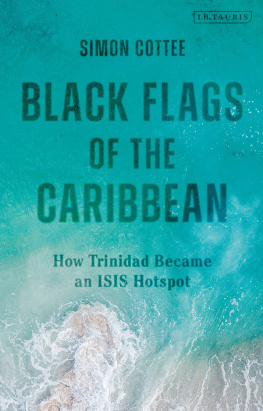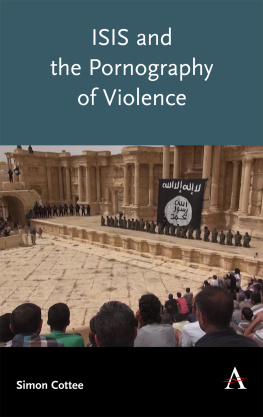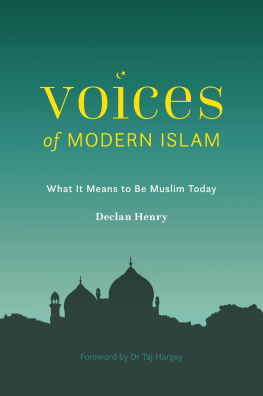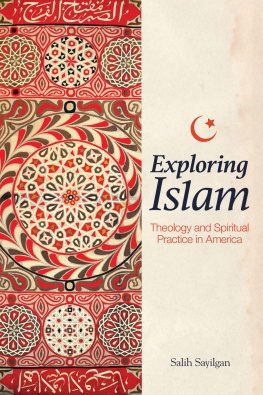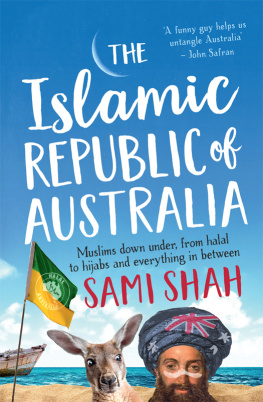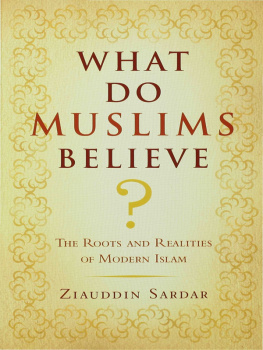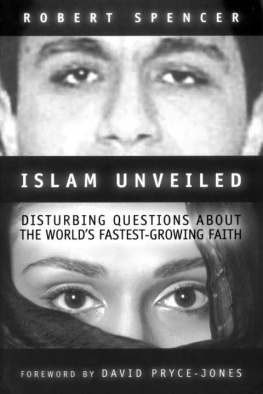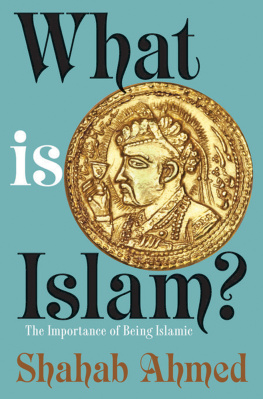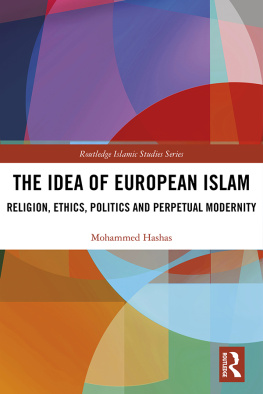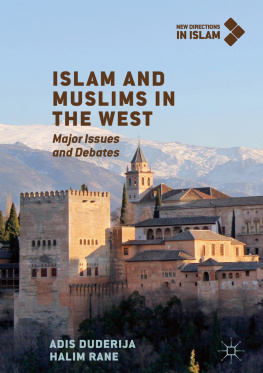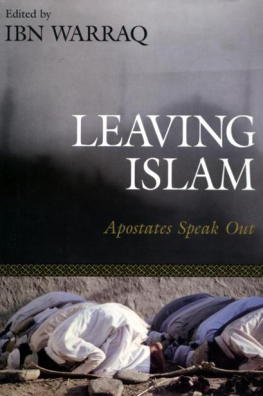SIMON COTTEE
The Apostates
When Muslims Leave Islam
HURST & COMPANY, LONDON
THE APOSTATES
First published in the United Kingdom in 2015 by
C. Hurst & Co. (Publishers) Ltd.,
41 Great Russell Street, London, WC1B 3PL
Simon Cottee, 2015
All rights reserved.
Distributed in the United States, Canada and Latin America by Oxford University Press, 198 Madison Avenue, New York, NY 10016, United States of America.
The right of Simon Cottee to be identified as the author of this publication is asserted by him in accordance with the Copyright, Designs and Patents Act, 1988.
A Cataloguing-in-Publication data record for this book is available from the British Library.
ISBN: 978-1849044691
epub ISBN: 978-1-84904-602-2
www.hurstpublishers.com
In memory of Irtaza Hussainex-Muslim, sceptic and freethinker 19912013
Change only the name and this story is about you.
Horace
CONTENTS
Irtaza Hussain was just 22 when he died. His body was found in Hainault Forest in Chigwell, Essex, at 4.20pm on Wednesday, 11 September 2013. He had hanged himself. And he wanted the whole world to know it, posting a picture of himself on Facebook only moments before. The picture was entitled Just a Jump Away and shows Irtaza sitting in a tree. The camera lens is pointing downward, rope ominously in view.
I first met Irtaza in March 2012. He had agreed to be interviewed for the research study on which this book is based. It wasnt an easy interview. Not because Irtaza was reticenton the contrary, he was talkative, vocal and often trenchant in his opinionsbut because he was initially emotionally distant and ill at ease discussing his personal life. He talked extensively about what he saw as the dangers of Islamism and passionately defended the principles of secularism, religious tolerance and science, describing himself as a staunch atheist. But I had to repeatedly press him about his family life. It was obviously a difficult subject for him.
My interview with Irtaza runs to just over two hours. And for most of that time Irtaza is cool and detached. Except for when he touches on his first suicide attempt, which he does only once and towards the end of our interview. Here his voice is raw and throbbing with emotion. It is hard to listen to.
In the months after our interview I stayed in contact with Irtaza, mainly through email, but we gradually lost touch. The last time I saw him was at a Council of Ex-Muslims of Britain (CEMB) lunch in November 2012. Most of us went to the pub afterwards, but Irtaza didnt join us. He seemed distant and left soon after the meal.
Born in Islamabad in 1991, Irtaza moved to Britain with his family in 2008, when he was sixteen, first to Cardiff and then to Dagenham in east London. Moving to Britain had a profound impact on him. By the time he began his A-levels, in Cardiff, Irtaza was having strong doubts about Islam.
On 21 October 2010, Irtaza made his first post on the CEMB forum, announcing that he had recently left Islam because of its inability to justify the restrictions it imposes on me, elaborating that I had a lot of trouble trying to make sense of what my parents had enforced upon me and I had quite a lot of difficulty trying to find out why it would be a good thing to call myself a Muslim.
Unlike many ex-Muslims I have interviewed, Irtaza was open about his apostasy and had told his family about his atheism. He said that the relationship with his father was especially turbulent and that leaving Islam made it all the more so. Indeed, according to Irtaza, his father had threatened to disown him over the matter. Despite this, they had reached an agreement: they were not to talk about faith.
Irtaza also had difficulties at college. Despite his intelligence, he had performed poorly in his A-levels in Cardiff and was unable to secure a place at university. This made him despondent. That his brother, Ijtaba, was academically very successful would only have amplified Irtazas crushing sense of underachievement: he had to settle for working at his fathers furniture store in Romford.
To read the scores of condolences on his Facebook page, Irtaza was well-liked and admired. You were a caring, sensitive soul with a brilliant mind, said one acquaintance, echoing a common sentiment. Andrew Copson, chief executive of the British Humanist Association, described him as an intelligent and thoughtful young man.
Irtaza had 290 friends on Facebook, yet he was profoundly lonely. He had few friends outside the virtual world of the internet. As he remarked on the CEMB forum, I hate not having physical company and I hate how Im completely alienated from society and will never find a way to fit in. In one post Irtaza alluded to the minor heckling or snarky comments he would encounter on the street in Dagenham. It is not difficult to imagine the tenor of these.
Irtaza especially wanted relationships with women. It pains me to know that these never went anywhere. Recalling one particular rejection in a forum post in January 2013, Irtaza said that I cried my eyes out. It was over the cancellation of a second datea second date. It is heartbreaking now to think just how vulnerable Irtaza was and how deeply he felt every disappointment and setback.
Reading his online postings, which became progressively more desperate towards the end, it is clear that Irtazas problems started to crowd in on him and that he couldnt see a way out. In one of his last CEMB forum posts Irtaza said he felt detached from realityLife just seems incredibly difficult and I dont want to spend the rest of my life like this.
In another post Irtaza said that he hated how people just ignore me even when I have something useful to say. This was a persistent theme in our interview. And it was a theme in Irtazas suicide note, which he posted on Facebook. It was addressed to all his friends and family. In the note, Irtaza speaks of his pain and his desire for an ultimate liberation from his torment. He speaks, too, of the indifference of friends and family alike, of the fools who will hold a candle saying that they missed me enough to mourn yet stand by doing nothing. And how ultimately no one cares.
Irtaza had an Islamic burial on Friday 13 September 2013, in accordance with his familys wishes. A week later, Irtazas friends held a secular memorial service for him in Kentish Town Community Centre. The turnout was good and many warm and affectionate tributes were made. Irtazas family was also present. Just as the event was about to end, Irtazas father rose to his feet and made an impromptu speech. By all accounts it was deeply moving, relaying memories of happier times, when Irtaza was a young child in Pakistan.
Irtazas apostasy was clearly a decisive event in his life, but so, too, was moving to Britain as an immigrant and the challenges of growing up as a stranger in a strange and not entirely hospitable land. In another poignant tribute to Irtaza, one friend and fellow ex-Muslim reflected: We all recognize ourselves in him Irtaza was just like us, a young person growing up in an adopted country, with sometimes difficult situations at home, financial issues, problems with career and employment, loneliness, heartbreak, sometimes stress, frustration, depression and despair.
There is a lot of pain and torment in the lives of ex-Muslims. This is to do, in part, with feelings of shame: the sense that theyve failed their families and the wider Muslim community, that theyre not right, that theyre wrong. Not normal. To do, also, with feelings of alienation, a sense of being out of place. Not belonging.
This book is about the experiences of ex-Muslims not unlike Irtaza. One interviewee, a young Sudanese woman, told me that leaving Islam is such an intense journey and you go through so muchbut to everyone else its just another story, people dont really care. This interviewee was referring to her non-religious friends. But to this womans family it isnt just another story. It is a calamity. The aim of this book is to document the difficulties and challenges which ex-Muslims face in traversing these two opposing worlds of care and concern.


